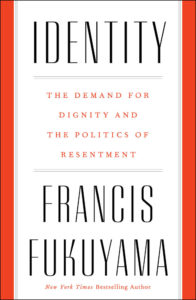 The rise of right-wing nationalist populism threatens liberal democracy because populist leaders seek to use the legitimacy they gain from democratic elections to undermine liberal institutions such as courts, the media, and impartial bureaucracies, argues Stanford University’s Francis Fukuyama. Populists’ distrust of “globalism” also leads them to weaken the international institutions necessary to manage the liberal world order, he writes for Foreign Affairs:
The rise of right-wing nationalist populism threatens liberal democracy because populist leaders seek to use the legitimacy they gain from democratic elections to undermine liberal institutions such as courts, the media, and impartial bureaucracies, argues Stanford University’s Francis Fukuyama. Populists’ distrust of “globalism” also leads them to weaken the international institutions necessary to manage the liberal world order, he writes for Foreign Affairs:
Liberal democracy cannot exist without a national identity that defines what citizens hold in common with one another. Given the de facto multiculturalism of contemporary democracies, that identity needs to be civic or creedal. That is, it needs to be based on liberal political ideas that are accessible to people of different cultural backgrounds rather than on fixed characteristics such as race, ethnicity, or religion.
The shift to identity politics “is not compatible with modern liberal democracy,” adds Fukuyama, a board member of the National Endowment for Democracy. “The latter is rooted in the rights of individuals, and not the rights of groups or fixed communities,” he insists. RTWT







